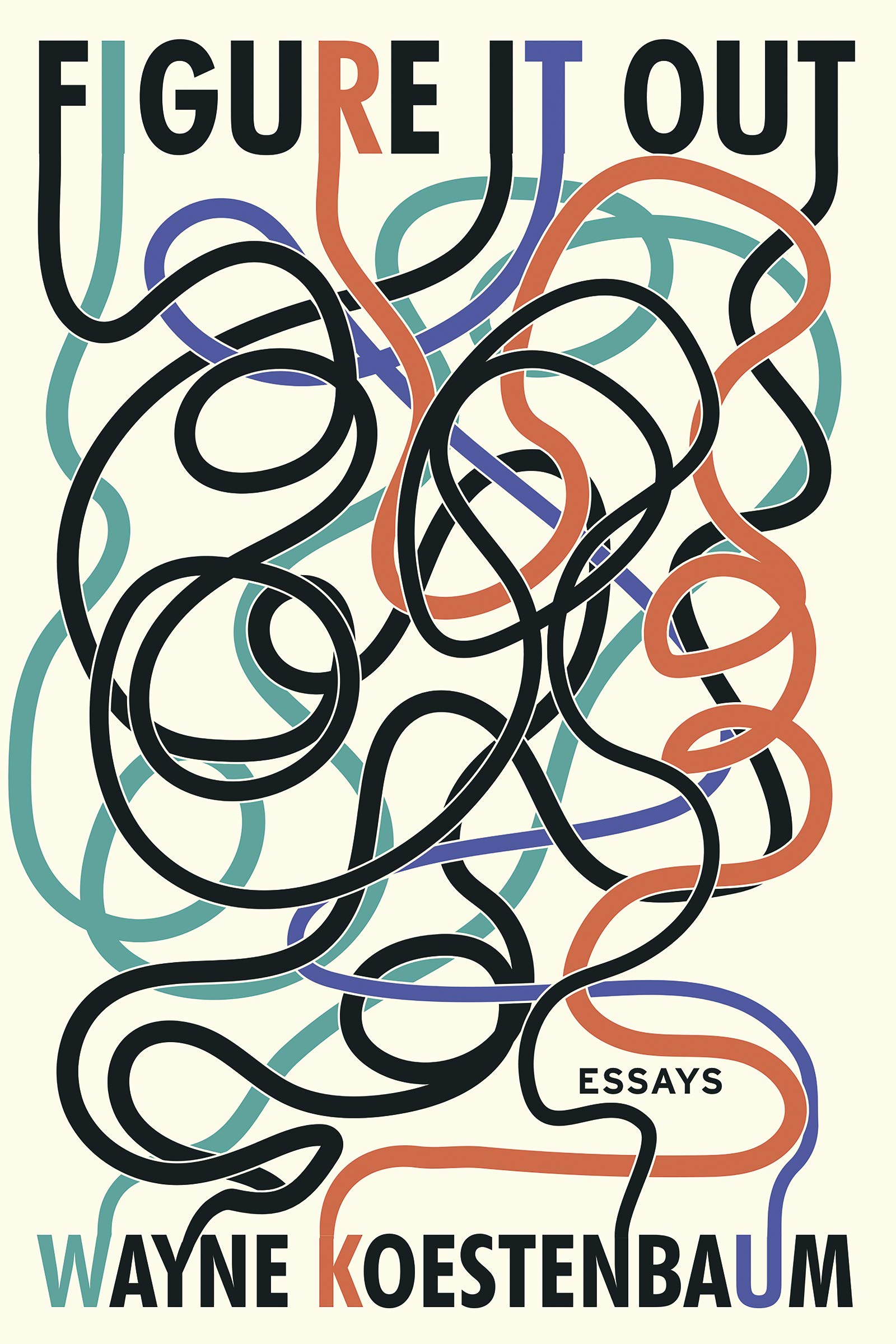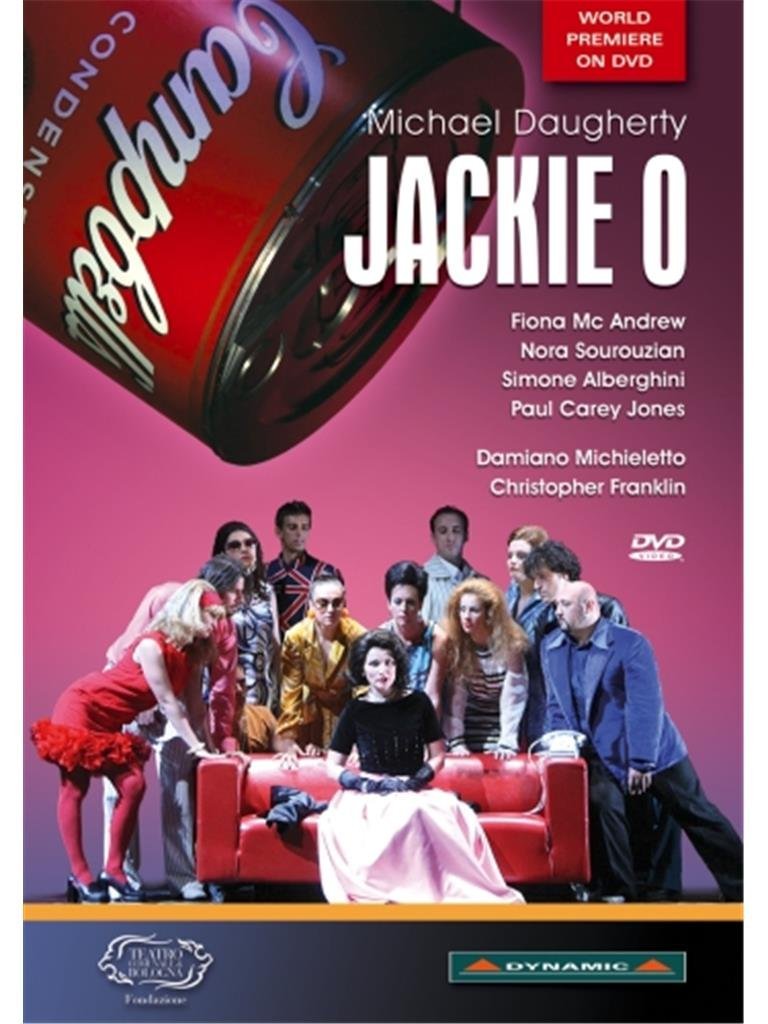Wayne Koestenbaum—poet, critic, novelist, artist, performer—has published twenty books, including Figure It Out: Essays, Camp Marmalade, Notes on Glaze, The Pink Trance Notebooks, My 1980s & Other Essays, Hotel Theory, Best-Selling Jewish Porn Films, Andy Warhol, Humiliation, and Jackie Under My Skin. The Queen’s Throat, praised by Susan Sontag as “a brilliant book,” was a National Book Critics Circle Award finalist, and appeared in 2020 in French translation. His novel, Circus, was reissued in 2019 with an introduction by Rachel Kushner. His essays and poems have been widely published in periodicals and anthologies, including The Best American Poetry, The Best American Essays, The New Yorker, The New York Times, The Paris Review, London Review of Books, The Believer, The Iowa Review, Cabinet, and Artforum. He wrote the libretto for Michael Daugherty’s Jackie O, which premiered at the Houston Grand Opera, and for Mohammed Fairouz’s Pierrot, commissioned by Da Capo Chamber Players. Koestenbaum’s brief essay-films, originally seen on Instagram (@Wayne.Koestenbaum), are the most recent development of his interdisciplinary, multi-media practice. His literary archive is in the Yale Collection of American Literature at Yale’s Beinecke Rare Book and Manuscript Library. He received a B.A. from Harvard, an M.A. from Johns Hopkins, and a Ph.D. from Princeton; he won a Whiting Award in Nonfiction and Poetry, and was a co-winner of the Discovery/The Nation Poetry Prize. Formerly an Associate Professor of English at Yale and a Visiting Professor in the Yale School of Art’s painting department, he is a Distinguished Professor of English, French, and Comparative Literature at the CUNY Graduate Center in New York City.
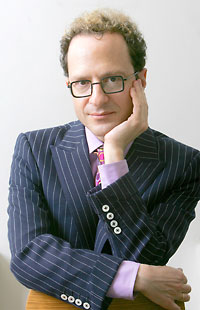
-
The Queen's ThroatOpera, Homosexuality and the Mystery of Desire
Fear the opera expert, he who knows everything, who puts your humble tastes to shame, who will criticize your recording of Turandot or even your affection for that vulgar opera, the opera queen who only like Monteverdi, the opera queen who doesn’t go to the Met anymore, the opera queen who can’t stand Sutherland, the opera queen who gave me his 1953 Callas Cetra Traviata because he said her voice was fingernails against a chalkboard, the opera queen who disagrees with the maestro’s tempi, the opera queen who hates Wagner or loves only Wagner, the opera queen who doesn’t recognize himself in this description, the opera queen who thinks homosexuality has nothing to do with opera, the opera queen who never has body odor but then, suddenly, unexpectedly, stinks, the opera queen who doesn’t come out to his mother because he says it will hurt her, the opera queen who loves the local production of Barbiere and the opera queen who makes fun of it, the opera queen who isn’t gay but seems gay because he has learned from opera queens how to be a connoisseur: the opera queen whose intense, phobic knowledge is a bludgeon.
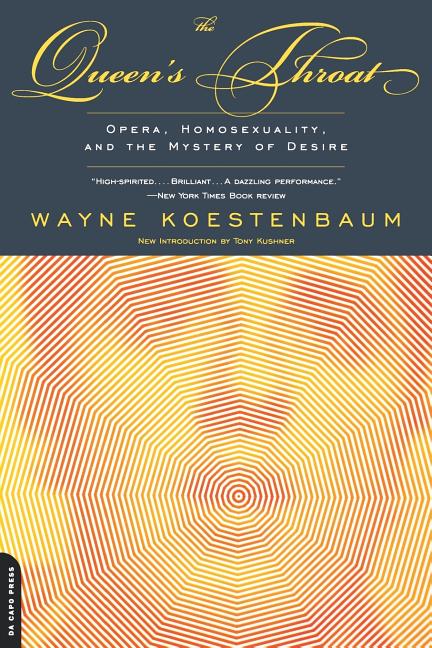 The Queen's Throat : Opera, Homosexuality and the Mystery of Desire
The Queen's Throat : Opera, Homosexuality and the Mystery of Desire -
The Queen's ThroatOpera, Homosexuality and the Mystery of Desire
I found romance in the spindle, the hole, the groove, the Capitol Records tower, the word “Decca” and its suggestion of “Mecca,” the deep red of Red Seal labels, the flimsiness of Dynagroove, the drama of records stacked at a slanted angle, like a fedora’s brim or an airplane’s wing, waiting for automatic play on my parents’ turntable: these were the molecules of love and loss, of sexual wonderlands beyond my grasp.
 The Queen's Throat : Opera, Homosexuality and the Mystery of Desire
The Queen's Throat : Opera, Homosexuality and the Mystery of Desire -
The Queen's ThroatOpera, Homosexuality and the Mystery of Desire
The diva is demonized: she is associated with difference itself, with a satanic separation from the whole, the clean, the contained, and the attractive. Mythically, she is perverse, monstrous, abnormal, and ugly. Though divas have been firmly associated with queens and with the perpetuation of empire, they have been considered deviant figures capable of ruining an empire with a roulade or a retort. Mozart’s librettist Lorenzo da Ponte condemns diva Brigitta Banti as “an asp, a fury, a demon of Hell, capable of upsetting an Empire, let alone a theater.”
 The Queen's Throat : Opera, Homosexuality and the Mystery of Desire
The Queen's Throat : Opera, Homosexuality and the Mystery of Desire
"Dazzling, exuberant, highly idiosyncratic . . . Koestenbaum writes with a heady lyricism that makes Jackie-watching an exercise of the soul as well as of the intellect." —New York magazine [on Jackie Under My Skin]
"A cornucopia of extravagant gestures and precise observations . . . [will] leave you breathless." —Thomas Disch, The Washington Post Book World [on The Queen’s Throat]
"Passionate, compassionate, and dispassionate at once, this book records a conversation between an art form and a way of life . . ." —The New Yorker [on The Queen’s Throat]
“Being a noted student of pornography, Wayne wisely keeps most of his essayistic ejaculations to satisfying clip-like lengths. And even when certain pieces go on, much of the text is really just ‘story,’ tension-building material that ultimately serves to support some money shot of critical insight. Indeed, that coming is such a perfect analogy for Wayne’s ecstatic style of looking, reading, and listening probably explains why many reviewers of My 1980s thus far have struggled with the rigor, validity, or even usefulness of his trysts therein with the likes of Hart Crane, Cindy Sherman, and James Schulyer—orgasm, after all, eschews justification, getting off is caused, tautologically, by whatever gets one off.” —J. Bryan Lowder, Slate
Selected Works
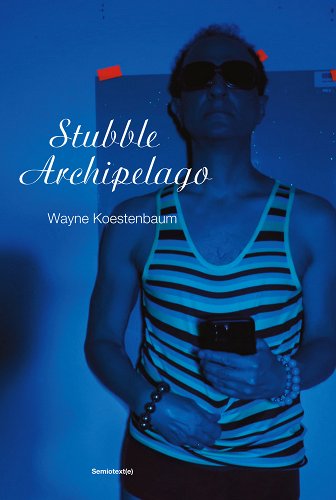
- Print Books
- Bookshop
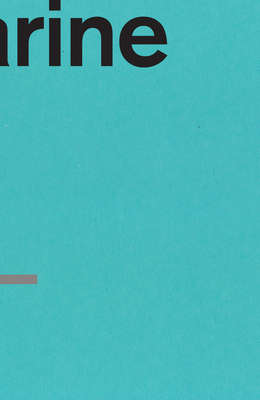
- Print Books
- Find your local bookstore (via IndieBound)
- Bookshop
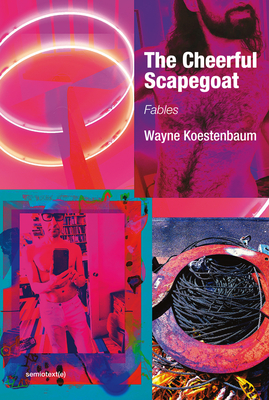
- Print Books
- Find your local bookstore (via IndieBound)
- Bookshop
